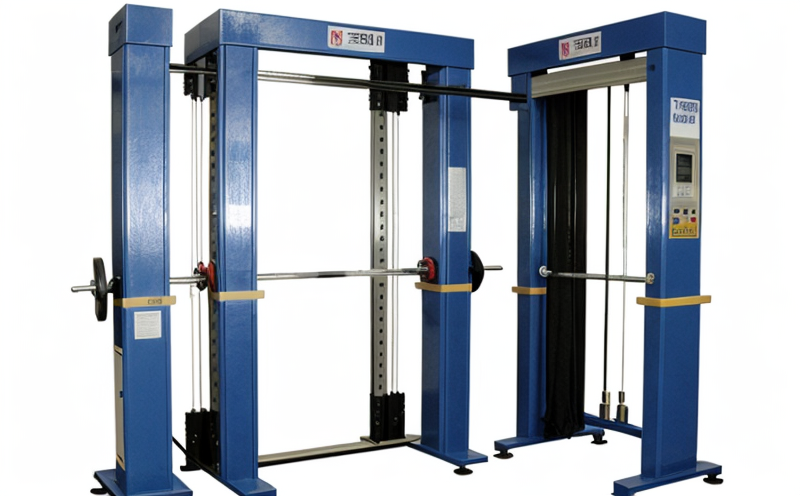JIS L1096 General methods for testing woven and knitted fabrics
The Japanese Industrial Standard (JIS) L1096 is a comprehensive set of guidelines used to determine the tensile strength and tear resistance properties of woven and knitted fabrics. This standard ensures that products meet stringent quality benchmarks, thereby enhancing reliability and performance in various industries such as textiles, automotive, apparel, and home furnishings.
The JIS L1096 covers a wide range of tests including single-fiber tensile testing, multi-fiber tensile testing, and tear resistance testing. The standard defines the necessary equipment, sample preparation procedures, test methods, and evaluation criteria for these tests. Compliance with this standard is crucial for manufacturers aiming to produce high-quality textiles that meet customer expectations and industry standards.
One of the key aspects of JIS L1096 is its emphasis on accurate measurement techniques. The standard specifies the use of highly precise instruments like universal testing machines (UTMs), which can provide reliable data on tensile strength and tear resistance. These tests are performed under controlled environmental conditions to ensure consistent results.
The process typically involves cutting samples from the fabric according to specified dimensions and orientations, then mounting them onto the UTM fixtures. The machine applies a controlled force until failure occurs, recording the maximum load and elongation at break. For tear resistance testing, special notched specimens are used to simulate real-world stress conditions.
The results of these tests are critical for quality assurance in manufacturing processes. By adhering to JIS L1096, textile companies can ensure that their products meet strict specifications and perform well under various stress conditions. This helps maintain brand reputation and customer satisfaction across different markets.
Moreover, compliance with this standard provides a competitive edge by demonstrating commitment to quality and reliability. It also facilitates easier market entry into Japan, where the standard is widely recognized and respected. For manufacturers in other regions, it serves as a benchmark for comparable tests conducted elsewhere.
In conclusion, JIS L1096 plays an essential role in ensuring consistent product performance across different environments and applications. Its rigorous testing procedures help identify potential weaknesses early on, allowing for improvements before mass production begins.
Industry Applications
The application of JIS L1096 is broad-ranging, covering various sectors that rely heavily on textiles. Some key industries include:
- Automotive Industry: Ensuring that seatbelts and upholstery meet safety requirements.
- Packaging: Developing strong packaging materials for food and pharmaceutical products.
- Apparel Manufacturing: Designing durable clothing lines that withstand daily wear and tear.
- Furniture Fabrication: Creating sturdy seat covers and cushionings for home furnishings.
- Military Applications: Producing protective gear and equipment that can endure harsh conditions.
In these fields, the tensile strength and tear resistance properties of fabrics are crucial factors. By utilizing JIS L1096 tests, manufacturers can ensure their products not only meet regulatory requirements but also exceed customer expectations regarding durability and longevity.
Eurolab Advantages
Eurolab, a leading laboratory provider specializing in textile testing, offers several advantages when it comes to JIS L1096 compliance:
- Accurate and Reliable Testing: Equipped with state-of-the-art equipment such as universal testing machines (UTMs) and specialized fixtures.
- Certified Technicians: Highly trained professionals who adhere strictly to the requirements outlined in JIS L1096.
- Comprehensive Reporting: Detailed reports are provided, including raw data, graphs, and analysis, ensuring transparency throughout the testing process.
- Quick Turnaround Times: Efficient processes allow for prompt delivery of test results without compromising accuracy or reliability.
- Broad Range of Services: Extensive experience in conducting a variety of textile tests beyond just JIS L1096, providing additional value to clients.
- Compliance Support: Assistance with interpreting standards and guidelines, helping organizations stay compliant with current regulations.
These advantages make Eurolab an ideal partner for businesses looking to ensure their textile products meet the highest quality standards. With our expertise in JIS L1096 testing, we can help you achieve your goals efficiently and effectively.
Why Choose This Test
Selecting the correct method for tensile strength and tear resistance testing is vital for ensuring reliable results that reflect real-world performance. Here are some reasons why choosing JIS L1096 makes sense:
- Standardized Procedure: Follows internationally recognized standards, ensuring consistency across different laboratories.
- Informed Decision-Making: Provides valuable insights into the physical properties of textiles, aiding in better decision-making during product development and quality control.
- Market Access: Helps companies gain entry into specific markets where JIS compliance is required or preferred.
- Credibility: Demonstrates a commitment to excellence and reliability, enhancing the reputation of your products.
- Risk Mitigation: Identifies potential issues early on, reducing the risk of costly failures during production or use.
- Cost Efficiency: By identifying defects early in the process, unnecessary waste is minimized, leading to cost savings.
In summary, JIS L1096 offers a robust framework for evaluating textile quality. Its standardized approach ensures that you are making informed decisions based on accurate and reliable data.





